There are problems in the world – we will solve them.
There are hindrances on the road – we will cross them.
There are difficulties in life – we will answer them.
In spite of problems, hindrances, and difficulties, life is beautiful!
“This pledge is how we start our days at Niwant,” shares Athang Bhandare, a 22-year-old from Vadhu Bhudruk village in Maharashtra. Up until he was 14, Athang studied in a regular school, with sighted children, but when his vision started to get bad soon after, he had to move to a school for the visually impaired. At 17, through word of mouth, he found out about an organisation called Niwant Andh Mukta Vikasalay, where a certain Mrs Meera Badve helped young people like him find their footing in the world.
Meera founded Niwant in 1996 and over the years, she has nurtured countless visually impaired people, providing them with education, resources, and a strong sense of community. She runs the organisation from her bungalow in Pune where, before COVID, a footfall of 200 students was common. Now, her daughter Uma, alongside her husband Anand Badve, is continuing this mission with the Swalekhan typing tutor app, a tool designed to help visually impaired students take exams independently.
Once a teacher, always a teacher…
Meera Badve had been an English teacher at many schools and colleges but after marrying and becoming a mother, she decided to take a step back from her career to focus on her family life. In the midst of the joys and challenges of domestic living, a persistent question lingered in her heart: “Who am I?”
“This is a common existential inquiry that a lot of women who step away from their careers to care for their families have,” she tells The Better India.
Meera thought of returning to teaching, even saying yes to the prospect of taking on a job at a college. But something told her to go and check on the blind school that her husband had been donating to for years. “I went on a whim and saw that there was a lineup of young kids who had just joined the school and seemed really homesick,” Meera recalls. “One of the kids ran up to me — I was in his way — and somehow just hugged me, thinking that maybe I was his mother. I held that kid back for as long as he did not let go,” she says.
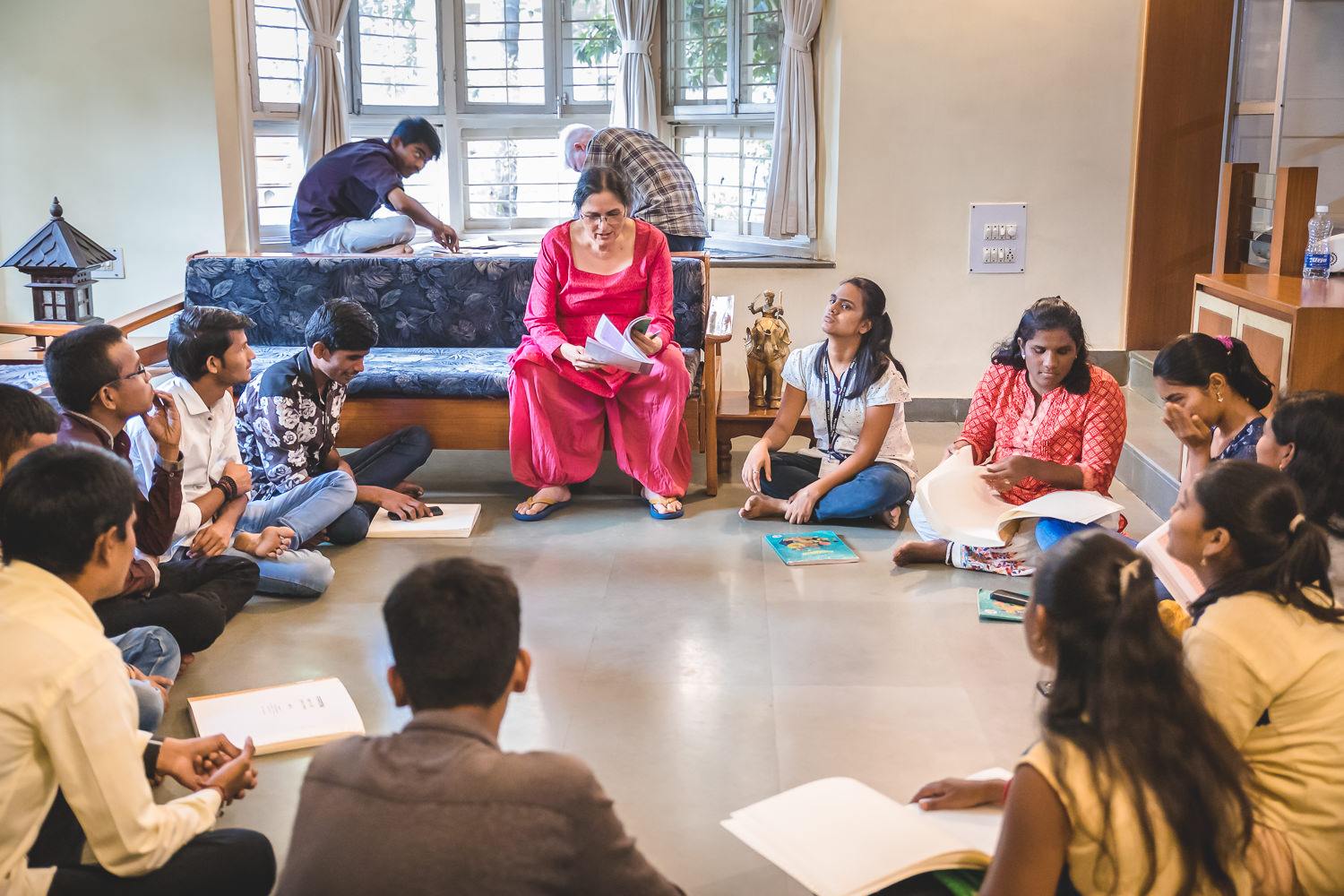
“When I walked out of that school, I told my husband, ‘I want to do something for the visually impaired,’” Meera says.
Her early days at the Pune Blind School were both humbling and challenging. “I didn’t even know braille at the time. When I would stand in front of the class I would almost be shivering in my boots. But these class 6 kids that I was a reader for, probably realised that I was tense and didn’t know how to proceed, but I think they felt that motherly comfort,” she shares. The students took her under their wing, encouraging her to learn braille. “Please don’t leave if you don’t know braille, we will teach you,” they told her.
Taking on a herculean task at the age of 42, Meera immersed herself in the world of visually impaired education and went beyond mastering braille; she made it a point to experience life as a visually impaired person. She would even walk through the streets with her eyes shut to understand how the visually impaired navigated the world through other senses.
“When you see a visually impaired or differently-abled person, you automatically assume that they’re ‘holier than thou’, like God. But that’s harmful because you’re essentially not giving them the choice to be naughty or mischievous like other children,” she reflects. Her work revealed the truth — that emotionally and intellectually, these children were no different. As she very fondly remembers, “They could lie, cheat, and even write braille love letters!”
After three years at the school, Meera began to feel restricted by the traditional educational system at the school. “Sometimes you chalk out a well-thought-out plan, and it still doesn’t give you the result that you want,” she says. “But sometimes, things that aren’t planned come to define your life and purpose.”
The first Niwant student
Meera left Pune Blind School, but she soon found one of her students right at her doorstep. “His name was Siddharth. He was in ninth standard and had just turned eighteen. But as per government policies, since he was an adult he had to find a way to support himself, his education, his rent and his mess. He couldn’t, so he was asked to leave school,” she says. “He had nowhere to go and his family, who had abandoned him, never came or called to check. For three weeks he was on the road, without any money or food, before he finally knocked on my door,” she says.
“That incident changed my whole perspective towards life. I kept thinking about how unfair it is that a young boy, who should be so full of life, was being treated like his existence didn’t matter to anyone,” she shares.
Meera took Siddharth in, fed him, and gave him the emotional and educational support he needed. Slowly, Siddharth regained his health and focus, ultimately passing his Class 10 exams. “When his tenth standard results were out, the rector of the school and I both were crying on the phone because Siddharth’s faith in me had given us a hundred percent success rate. He was the first student of Niwant,” Meera recalls.
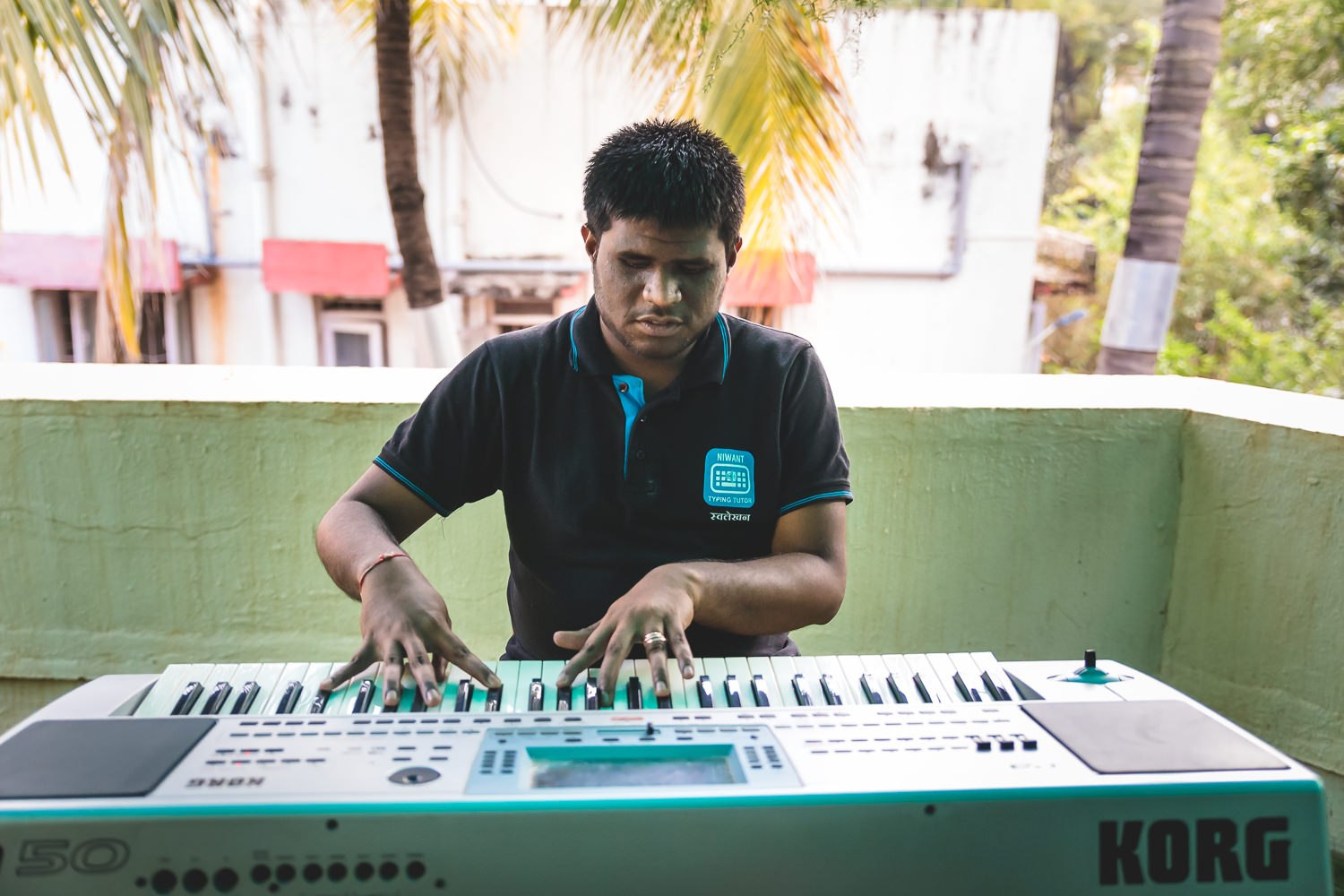
“Once he passed, he told everybody that Meera madam will help you with anything that you want, and that’s how the door to my house was opened to hundreds of more students in the coming years and still the journey is going,” she says.
This victory set the tone for the next 27 years of Niwant’s growth. From a single student, Niwant grew to become a centre for education, life skills, and emotional support, where visually impaired individuals could thrive, learn, and build careers.
“Government policies or welfare schemes pretty much run out when the person turns eighteen,” Meera explains. “Society does not want them in the social fold because they are non-productive, and families also prove to be difficult unless you come from a privileged background. After eighteen, they are left to fend for themselves, and these are the kids that I wanted to do something for.”
Building a community
When Niwant was in its early days, funding was limited, and resources were scarce. Audiobooks are all the rage today, but back then, it was a huge challenge that very few students knew braille. To make braille books, they resorted to using magazines, painstakingly transcribing text by hand. But over time, with endless support from the local communities, Niwant became home to ‘Vision Unlimited’, a braille library with more than 3,000 books in various languages.
The first 250-300 books were handwritten, a labour of love and dedication of the students. By 2007, Niwant received a braille printer, a moment of pure joy for the team, and it marked a significant turning point in the organisation’s ability to support its students.
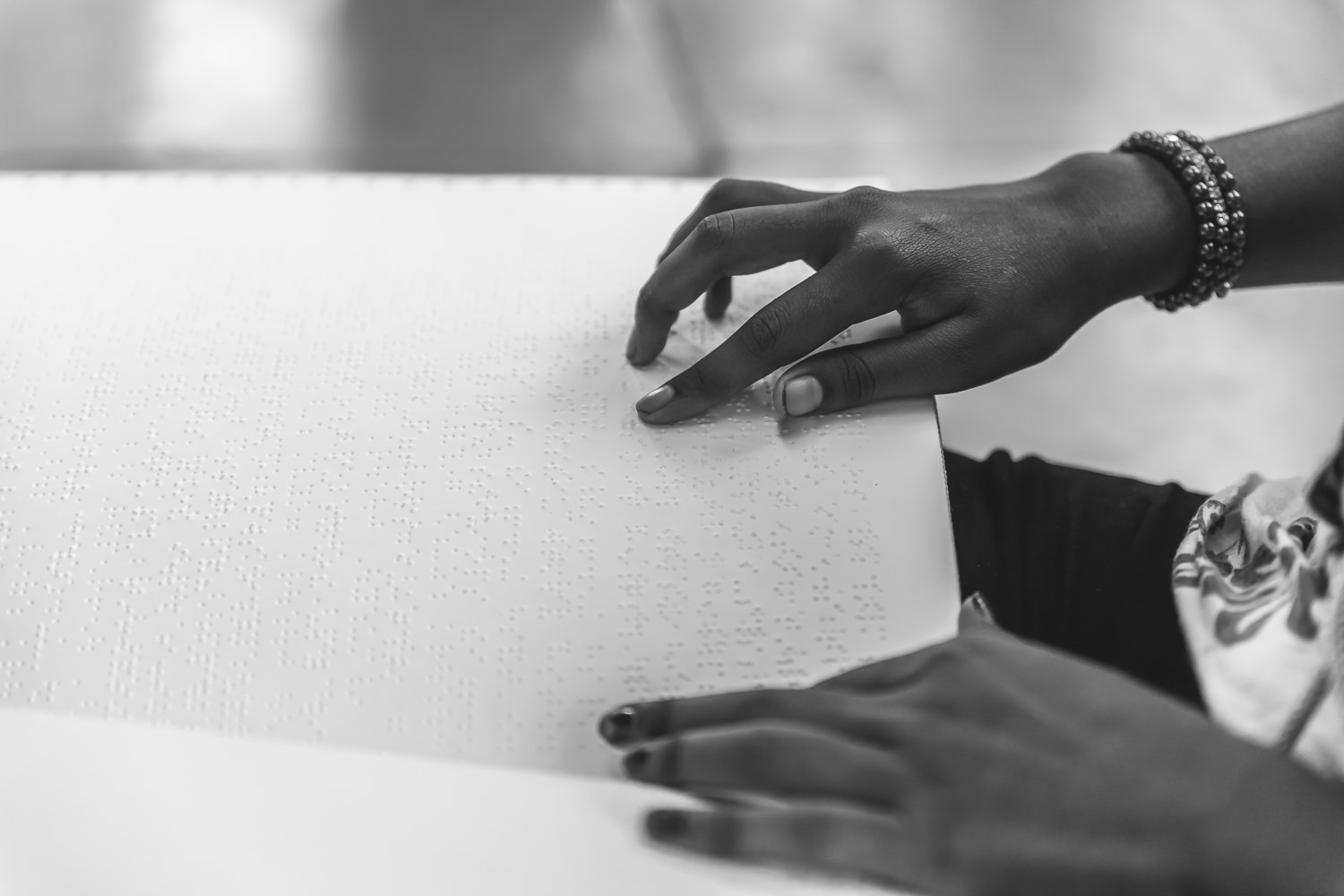
Now, with two braille printers, thanks to the generosity of the Rotary Club of Pune Westend, Niwant prints over 1.5 lakh pages of braille literature each year, covering both curricular and extracurricular content. The library has expanded far beyond its humble beginnings and now includes an electronic braille reader, a SARA auto reader (which helps people who are blind or have low vision read printed materials), a multi-page scanner, and two embossers. Today, the impact of the library extends across Maharashtra, with 17 branches of Vision Unlimited serving visually impaired individuals across the state.
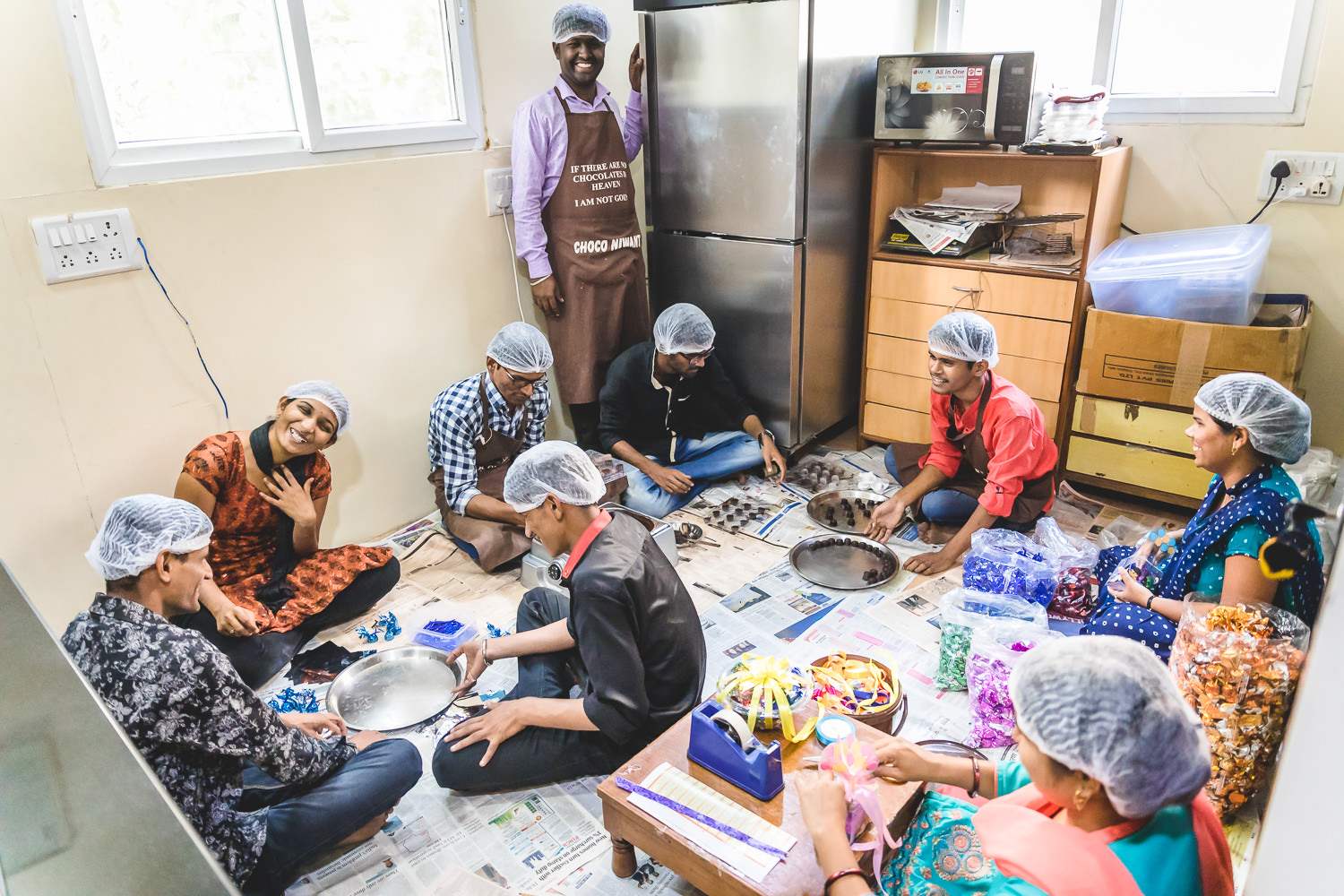
“They worked so hard at everything that we would do because finally, they had a place where they could channel all of their creative, academic, and artistic visions,” Meera shares. The students also created lasting traditions, like planting trees each year. “If you come to Niwant, the whole gully is green because every year, the 12th-grade batch plants trees to their name,” Meera says.
The spirit of giving back is ingrained in Niwant’s students. “We even had ‘The 1% Club’, made by some ex-students,” Meera shares. Former students have started their own Niwants in local communities, continuing the legacy. “They house some of the students who study at Niwant,” she proudly adds.
Towards a future with no scribes
In 2019, Meera Badve’s husband, along with their daughter Uma, launched Swalekhan Typing Tutor — a multilingual typing tutor app designed to help visually impaired students write their exams independently. Uma, who has a diverse professional background, explains, “Working for the visually impaired came to me very naturally because that’s just what I grew around.” Raised in an environment where visually impaired students were always in their homes, Uma understood the struggles they faced. “I wrote so many papers for these kids as a scribe, and I realised it’s not a completely meritorious process,” she adds.
Swalekhan’s aim was to eliminate the dependence on scribes during exams. “The visually impaired community has made a lot of strides in terms of becoming independent, but when it comes to giving exams, they still depend on scribes,” Uma says. Initially, they hoped the app would be widely adopted by older students in colleges, but, “We realised that the older students had become so dependent on scribes that they had acute anxiety on giving them on their own,” Uma reflects. So, they shifted focus to younger students.
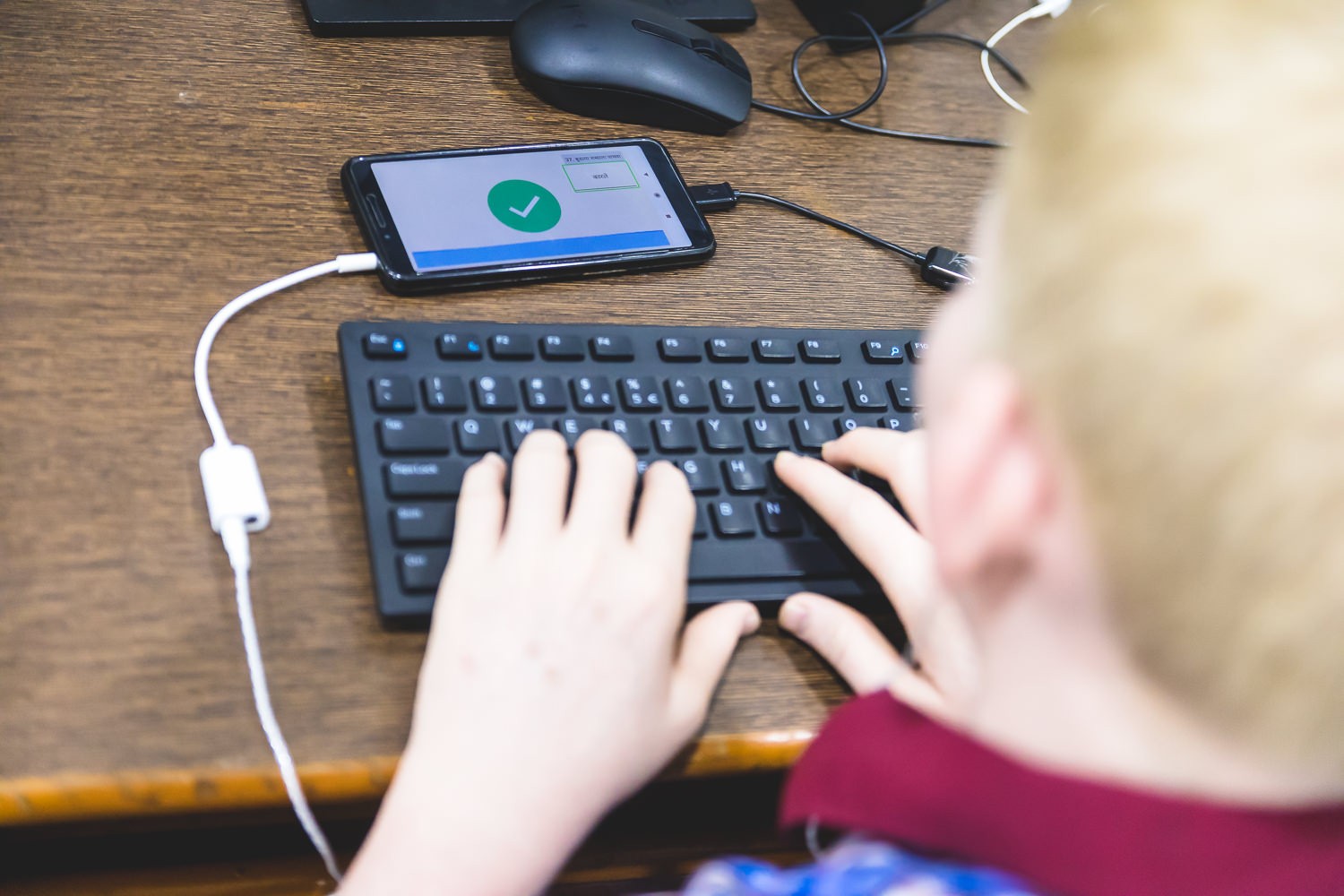
“We partnered with some blind schools in Pune and taught Class 4 to Class 8 children how to understand audio instructions and type without a scribe,” Uma shares. In just eight months, they taught 1,200 children across Maharashtra how to type in Marathi. The app is now being used by over 2,000 children, with around 150 taking their exams independently this year.
With government support, the app has expanded its reach, including a Hindi version and plans to integrate it into the National Centre for Intelligence. “In the West, they don’t use a scribe. They teach touch typing,” Uma adds. Through Swalekhan, Niwant is now helping reshape the future of visually impaired students in India, allowing them to take charge of their education without relying on others.
Niwant’s growth story is intertwined with the Badve family’s dedication. Uma recalls, “When my dad turned 60, he left his business and joined my mother. The number of students we had coming in grew, so it was good that along with the volunteers and teachers, she had more help.”
Meera and her husband started by providing basic education and braille resources and then expanded to include classes for competitive exams, like banking and government jobs. Over 200 Niwant students are now employed in government jobs, particularly in the banking sector, where there is a quota for the visually impaired.
‘Miles to go before I sleep’
Niwant’s unique model of learning and support has led to lasting relationships among its students. “Kids were coming in at 11th grade, and we would help them until they got a job,” Meera explains. Many students, who had been coming to Niwant for years, ended up marrying one another. “I am an only child, and I always wanted siblings. Suddenly, I had a big family of visually impaired students,” says Uma.
Tech Vision, a software company that started as part of Niwant, is another example of the impact Niwant has had. “Siddhant Chothe, one of our students who lost his vision later in life, was struggling to find a job despite having a master’s in computer science,” Meera recalls.
After many unsuccessful attempts at getting Siddhant a job, the Niwant family, realising they didn’t need anyone else, decided to start something of their own. With everyone’s efforts, Siddharth launched Tech Vision.
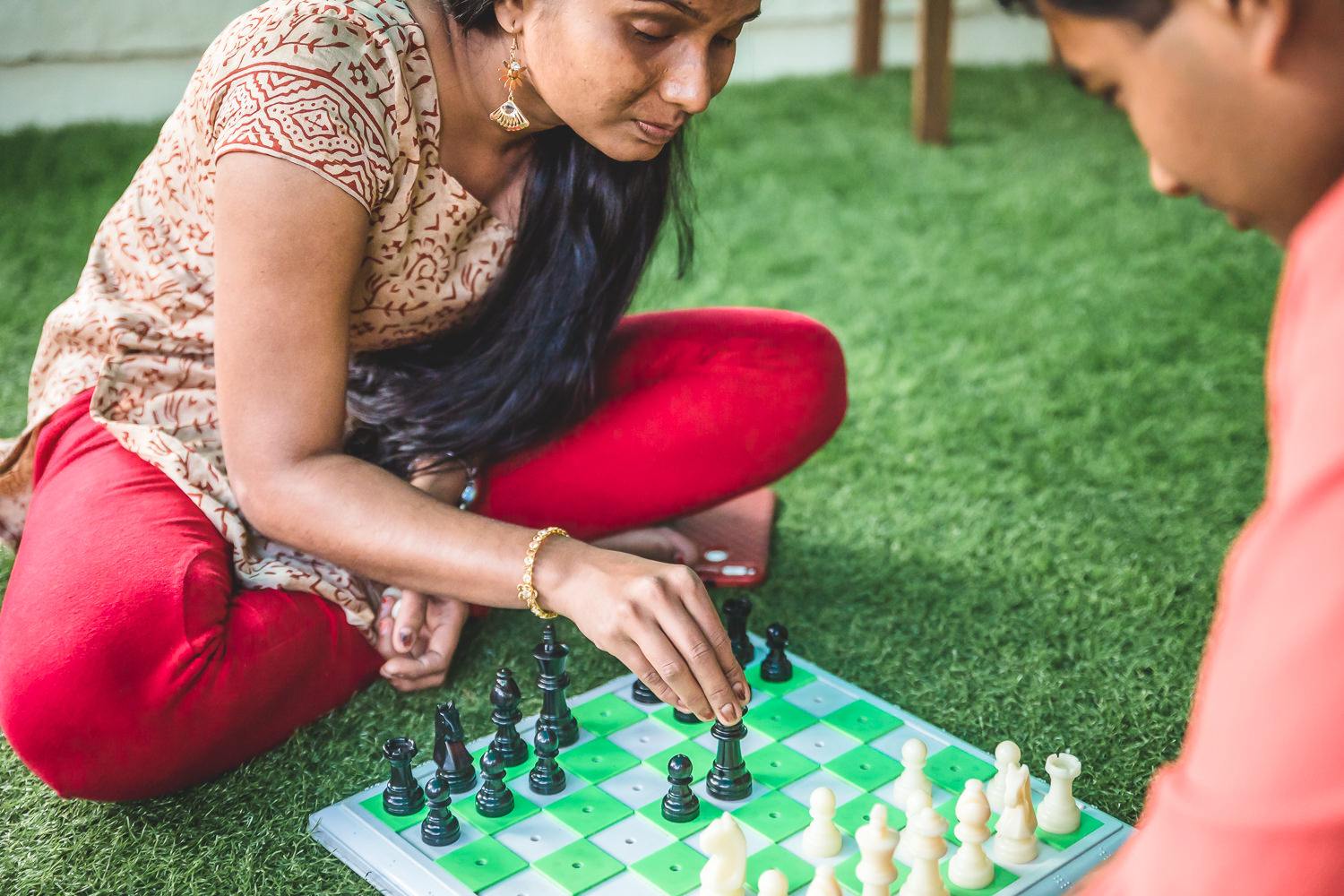
“It was our organisation’s software. But after a couple of years, we all realised that it could be a profitable business. So, we helped Siddhant set up the tech as an independent identity. It became a profitable venture, and Siddharth now runs it with a team of 20 people, several of whom are visually impaired Niwant graduates,” Uma explains. Tech Vision generates around Rs 3 crore to Rs 4 crore annually, providing jobs and opportunities for Niwant’s students.
“We created small jobs for the students at the NGO as well, so it is run by us for our people,” Meera says. This self-sustaining model allows Niwant’s students to learn, earn, and gain practical experience. Athang Bhandare, a Niwant student, now handles the front desk at Niwant, answering calls from people inquiring about the organisation. “There is a team of 17 visually impaired people who work with us, 11 of them are teachers,” Meera proudly shares.
Today, if you were to call the number given on the website for Niwant, you’d be greeted by Athang Bhandare, a dancer and a history major, one of Niwant’s students.
Niwant has proved to be much more than just an educational institution. It’s a home for holistic development, where visually impaired students receive academic support and gain emotional and practical guidance. Athang, who joined Niwant at the age of 17, credits the organisation with shaping his life.
As Niwant celebrates its 27th year, the organisation’s mission remains as strong as ever. Meera’s vision of providing a place where visually impaired individuals can thrive continues to inspire her family, and her daughter Uma is committed to carrying forward this legacy. “My mother wanted the kids to have the same life that I did in whatever capacity she could manage it,” Uma reflects.
Edited by Arunava Banerjee; All images courtesy Niwant Andh Mukta Vikasalay
No comments:
Post a Comment